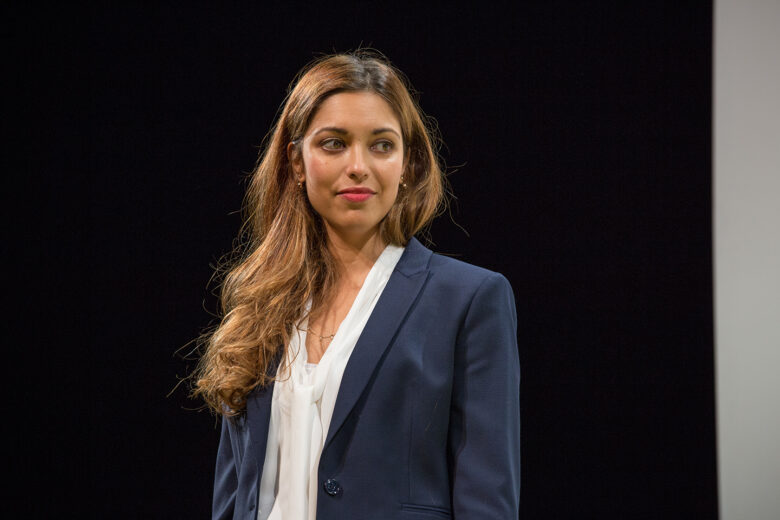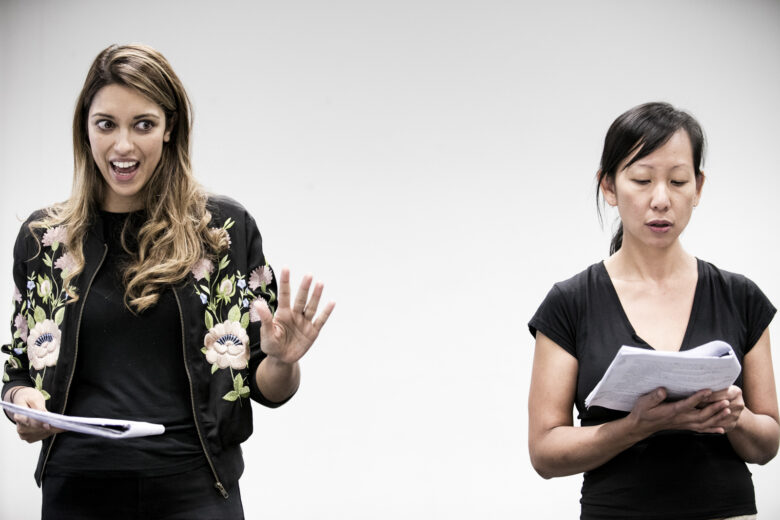Michele Lee looks back at her QPDA experience
Michele is an Asian-Australian writer working across theatre, live art, audio and screen. Her works explore otherness, identity and found families, usually through contemporary narratives that privilege the experiences of women and people of colour.

Her play Rice won the Queensland Premier’s Drama Award 2016–17 and made its world premiere in Queensland Theatre’s 2017 Season. Following seasons with Griffin Theatre Company and Hothouse Theatre, Rice also went on to receive the Victorian Premier’s Literary Award, Drama and the Australian Writers’ Guild award for Best Original Stage Play.
How has winning the Queensland Premier’s Drama Award changed your writing or your career?
It’s always great recognition to win an award— you can lose perspective, lose confidence when you’re slogging away at a piece. So an award can be a strong reminder that you may be more on track that you think.
Awards aren’t the only metric, of course, and having been on the other side assessing for grants, awards, commissions (and for job candidates in my former desk job) I know how subjective the decision-making is, and that whether explicit or not, there are agendas and objectives behind an award. This is just to say that winning an award, yes, definitely, is a great feeling and a real boost, and completely valid and legitimate. And that getting knocked back sucks, but it doesn’t ever mean that your work doesn’t deserve further consideration or love elsewhere, in a different forum, at a different time.
The Queensland Premier’s Drama Award is a unique award in Australia as it’s a commission and licensing all in one. So if you win, YOUR PLAY IS GOING ON!!! The fantastic thing about that is that you get a chance to refine your play for the pressures and realities of production (rather than endless development or developments that don’t go anywhere). And then, of course, you get to see your play moving and breathing in production. It helped me reflect on what I thought were strengths and weaknesses of my play, of my craft, and the challenges in the play for the next team who might put it on. And it is going on again – Rice is having a UK premiere later this year. Having a show professionally produced also helps demonstrate to future funders or programmers that you can deliver production-ready scripts.
Rice had great reviews. And average reviews. Great reviews are good to use for future grant applications, for promoting the next work. And average reviews – I hate them, I love them, and they can be instructive for me. Not every artist engages in reading reviews but I find it useful, and Rice – as my first mainstage debut – gave me my first real exposure to the range of reviews, and building my muscle around engaging with reviews.

What was it about your story that convinced you it had to be performed on a stage?
I first conceived of Rice in 2013, years before the Queensland Premier’s Drama Award. The initial image I had was of two women of colour onstage, and that they would play all the characters, big and small. At that point in time, it felt uncommon to see an Australian play where people of colour could occupy the centre and also be allowed to transform into all periphery roles. I also hadn’t seen or read many plays that presented characters of colour from different communities together, so the innovation I was interested in was having an Asian woman and a South Asian woman as the only two bodies sharing the space, and allowing female actors of colour to transcend race, gender and age. I wanted the actors to be able to flex their acting chops, and I wanted the characters to be two people you might not usually see together in the same story.
It was pretty essential to me that this was a stage story, and that the audience would have that proximity to the performers.
What was the creative development process like for you?
The development process was tailored to my needs and to my schedule, as I’m sure it’ll be for the finalists for this year. Queensland Theatre were great with that (they are not asking me to say this, this is genuinely how I feel!).
The play sounds simple, maybe, from the above description. A two-hander. But the world was quite busy and full of lots of ‘Michele’s real-life research about business and agriculture’. And it sounds simple, maybe, that it’s about these two women becoming friends. I’m sure someone smarter than me has talked about dual protagonist stories, but that’s what this one was. So I had to stay on top of their individual stories, their B stories, their friendship, all the while trying to put in the right amount of business/agriculture stuff.
So the Queensland Premier’s Drama Award development came off the back of about three other lots of development, where I was spinning around and around in all these possibilities. It was great to get the focus via the Award to hone in on things and sharpen those things.
Specifically, I think the creative development allowed for three days of workshopping, some meetings with a dramaturg, and then the week of workshopping leading up to the showcasing of the finalists’ works.

Was there anything about the rehearsal/production process or working with a major theatre company that surprised you?
I had my son, Yeng, six weeks before rehearsals. For some reason, which I put down to willful ignorance, I thought I could come up for week one of rehearsals and on my own. And maybe do rewriting if needed. HA. My mum-in-law came with me, which turned out to be essential for my mental health. However, I couldn’t really focus in the room as much as I wanted to as I had to drop my day-time naps (mine, not the baby’s) to do rehearsals and then was out like a light at 6.00pm. There was also then no time to re-write. This is not so much a surprise that arose out of the process, it just coincided with the process! But perhaps the takeaway is that, yes, it is possible to merge your personal life/family life/carer responsibilities with your creative practice. But be kind to yourself with your own expectations, and that generally I think most theatre companies are kind to you too.
What advice would you give yourself if you were to start your Queensland Premier’s Drama Award experience over again?
I had such a positive experience. So I would probably just say keep trusting your gut, listen to advice, take what you need, discard what you don’t. And be kind to yourself; writing a play is hard work — you are often just making stuff up from scratch, and to mould that fictional stuff so that it feels true is hard — so it’s not a sign of you being a bad writer by having a million re-drafts.

—
You can find the script for Rice at Playlab, which makes its UK premiere in November 2021 at Surrey’s Orange Tree Theatre, including live-streamed performances on Thu 4 and Fri 5 November.
Entries for the Queensland Premier’s Drama Award 2022–23 close on 3 September 2021.



